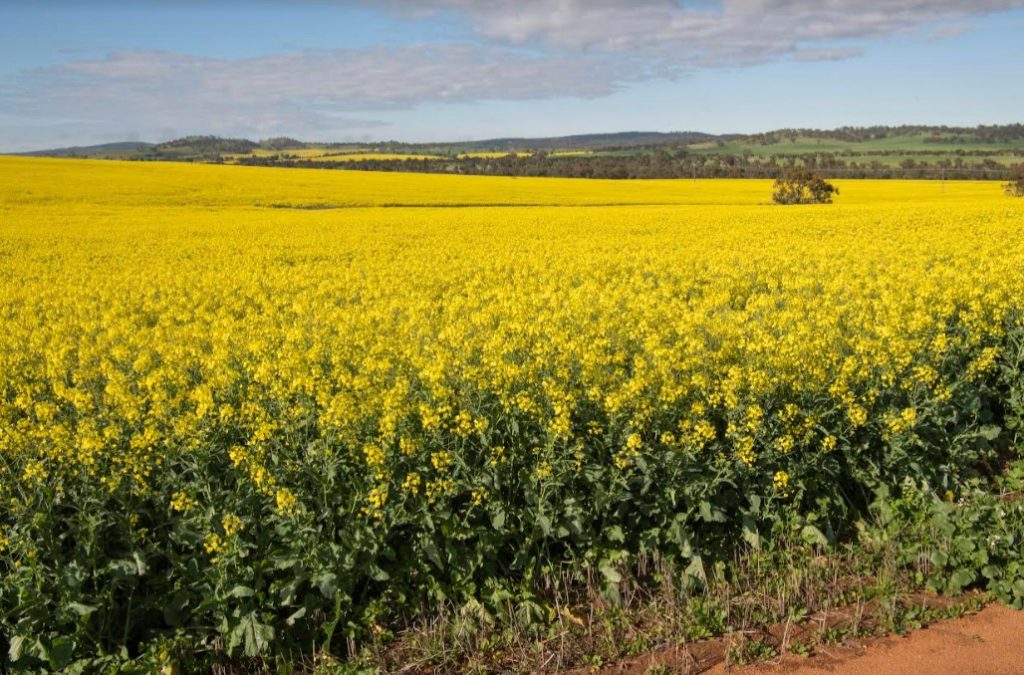
Photographers and admirers of the Spring scenery in WA’s regional areas have been reminded not to enter farmers’ properties and risk a biosecurity incident.
TOURISTS in Western Australian livestock farming and cropping areas are being reminded of the biosecurity risks to crops and livestock their visits to farmland could represent.
Blooming canola crops and wildflowers across parts of the state during Spring has prompted the Department of Primary Industries and Regional Development (DPIRD) to issue a biosecurity reminder to visitors and photographers.
DPIRD grains biosecurity officer Jeff Russell said locals and tourists could unwittingly spread weeds, pests or diseases, posing a biosecurity risk to crops and livestock.
Mr Russell reminded the public not to enter farmers’ properties and risk a biosecurity incident.
“Weed seeds and soil material that may contain a fungal disease could easily be spread on footwear or vehicles to other properties, which could have a potentially devastating impact.
“It is not appropriate to jump the fence onto a farmer’s property and a far too great a biosecurity risk so best to stay on the road verge to admire the view and take photographs from there,” he said.
Mr Russell said the public could assist the department by monitoring road verges for pests and diseases and reporting observations to DPIRD.
“Roadside monitoring makes an important contribution to biosecurity surveillance, as a first line of defence.
“By downloading the free DPIRD MyPestGuide Reporter app, people can take a photograph of any insects or suspect plant diseases on the road verge, send it to the department and our team will respond with a diagnosis and risk determination,” he said.
For more information on how to download the MyPestGuide Reporter app visit www.agric.wa.gov.au/apps/mypestguide-reporter.
Source – DPIRD.

HAVE YOUR SAY